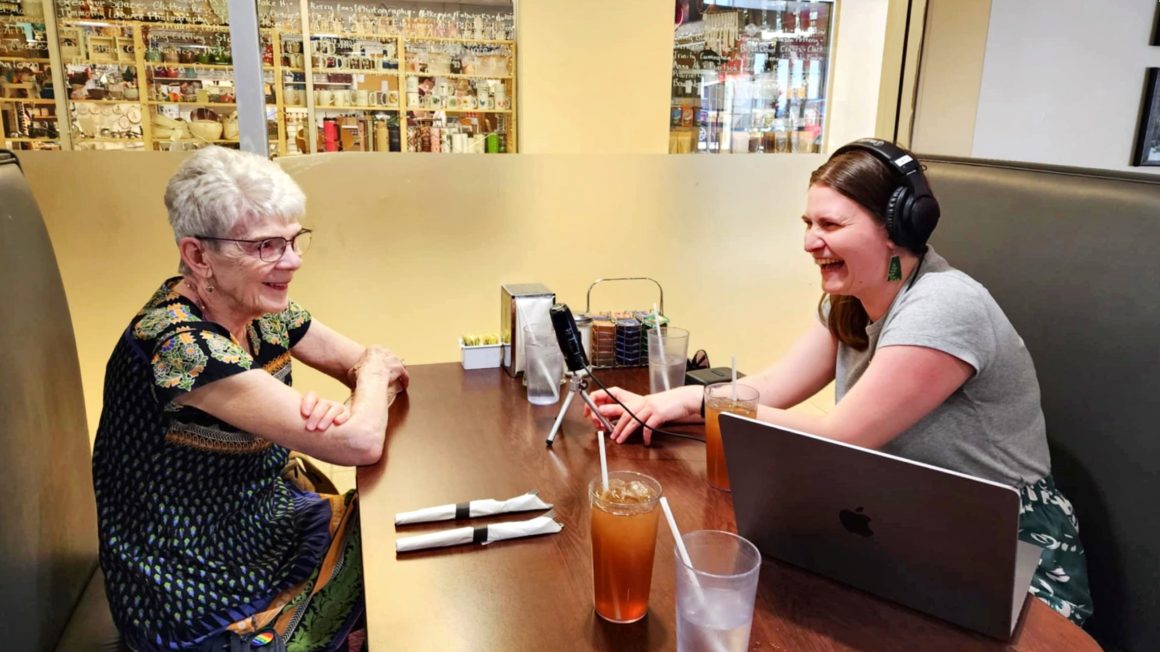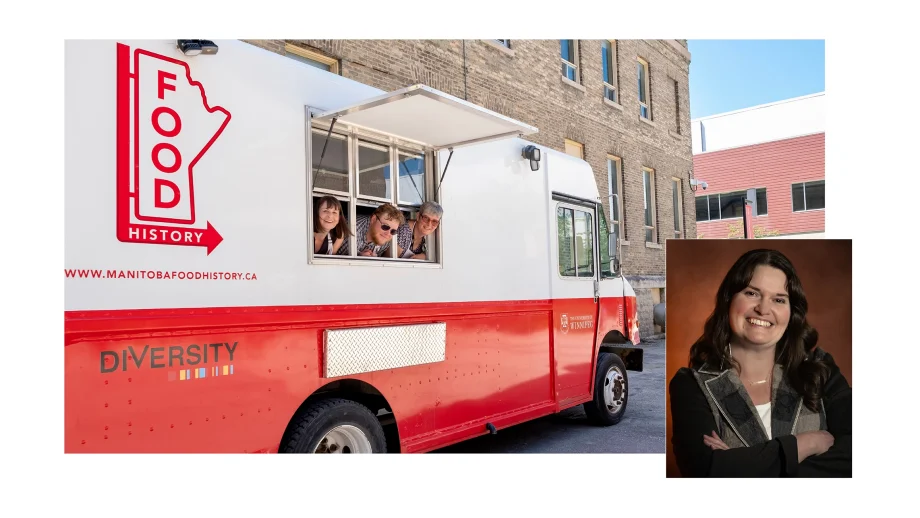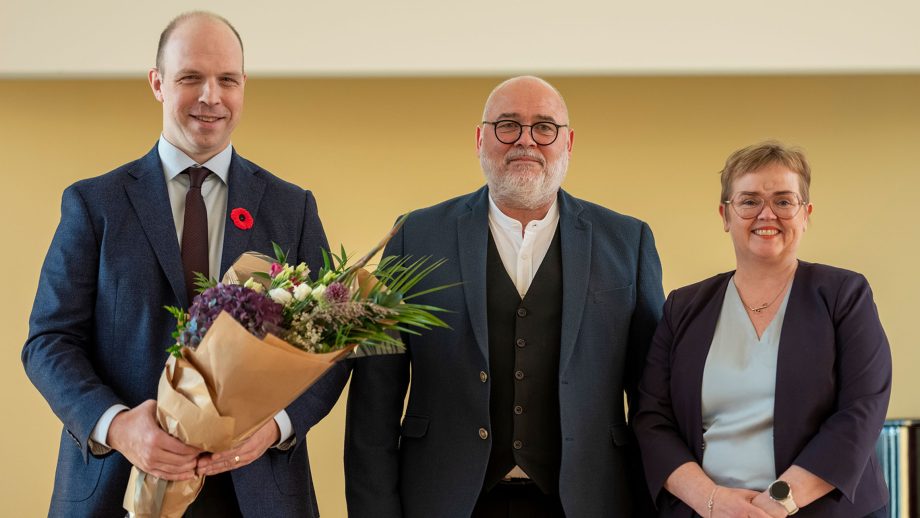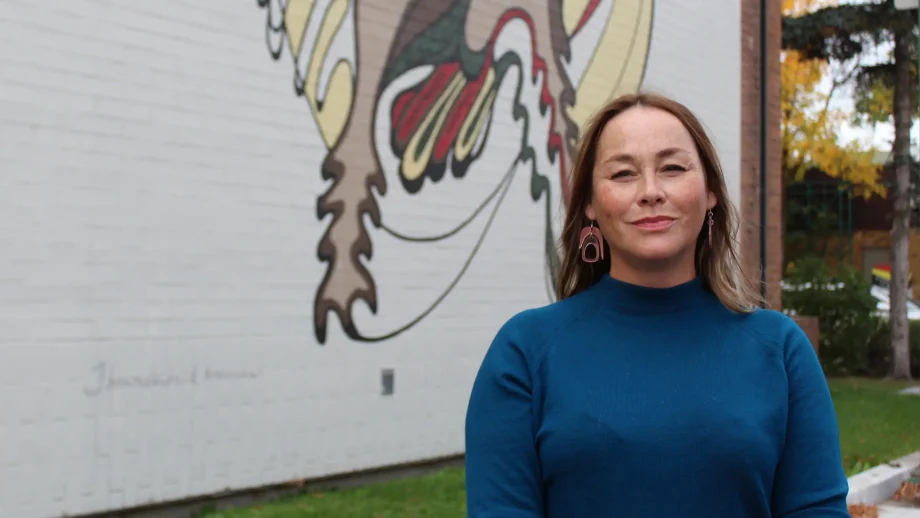Since January of this year, UWinnipeg associate history professor, Dr. Aileen Friesen, and UW alumna, Kate Moulden (BA 24), have conducted more than 50 interviews with children of Mennonite immigrants.
“It’s approximately one interview every two days,” Moulden said.
Once completed, the pair will have recorded over 100 interviews across Canada, and their project – Children of the Russlaender Mennonites: Building family and community in Canada – will be one of the largest Mennonite oral history projects in Canada ever completed.
Remembering this history helps us to understand our obligations as settlers on this land.
Kate Moulden
The project is run through UWinnipeg’s Centre for Transnational Mennonite Studies, and aims to capture fading histories of approximately 21,000 Mennonites who migrated to Canada during the 1920s from the Soviet Union.
“Pretty much everyone who migrated has already passed away,” Dr. Friesen said. “So, this project has been focused on looking at the memories of their children during their childhood and early adolescence.”
In the 1920s, about one-third of Mennonites left Soviet Ukraine and Soviet Russia in the aftermath of war, revolution, and famine, as they faced an uncertain political climate under a new communist government.
“The project is exploring how this community adapted to new life in Canada, through the memories of their children,” Friesen added. “Also, how the community attempted to rebuild itself once it arrived in Canada.”
Through these interviews, the project will try to better understand the values of that community and the impact of language, religion, and home life as they adaptated to life in Canada.
Context in a modern world
Having an appreciation for these themes, Friesen and Moulden said, provides important perspective for modern immigration.
“When we see all these questions surrounding whether or not immigration should take place, or to what extent, it’s good to be reminded that Canada had those same questions in the 1920s,” Dr. Friesen said. “Yet they ended up welcoming these Mennonites, who have then become incorporated into the fabric of Canadian society in a very integral way, just like all of the other immigrant groups who have come as well.”
“I am born of settler parents,” Moulden said. “Remembering this history helps us to understand our obligations as settlers on this land.”
Experience for UWinnipeg students
Projects like this also provide a wealth of opportunities for UWinnipeg students to gain valuable experience and skills that complement what they get in the classroom.
“They get a different type of hands-on training that is not like being in a classroom” explained Dr. Friesen. “They get to actually take that knowledge and use it in a real project.”
Moulden graduated from the UWinnipeg History program in 2024, and is now working on a Master’s degree at Carleton University.
“Getting involved in learning how to do ethics and how to conduct these interviews and help people feel safe and welcomed, it has been such a privilege for me,” she said. “I am now going to be incorporating oral history interviews into my Master’s degree because of this work that I’ve been doing at UWinnipeg.”
The experience has also given Moulden a better understanding of her own roots and family dynamics.
“These are my great grandparents,” she said. “So my Oma, who’s no longer with us, was one of these people that we would have been interviewing.”
“I’ve been able to see where I am in my own life, reflected in their childhoods and in where they’re at in life, and to understand where my life could go,” she added. “It’s absolutely incredible listening to people. And, in some ways, getting to have the stories of the grandparents that I never had and hear all these stories that I never got to hear.”
More to come
The three-year project is being funded by Walter and Marie Schroeder through the Schroeder Foundation, and is part of a $750,000 donation to fund history projects at the Center for Transnational Mennonite Studies at The University of Winnipeg.
“It was amazing that Walter and Maria Schroeder provided the Centre with funding,” Dr. Friesen said. “And this is just one project of several. We have a forthcoming documentary with director Andrew Wall and a digitization project in war-torn Ukraine. None of this can happen without proper funding.”
Dr. Friesen said they have only just scratched the surface of this oral history project. She plans to turn the interviews into a podcast as well as a book over the next three years.
The Centre for Transnational Mennonite Studies (CTMS) is a research centre at The University of Winnipeg that approaches the history and culture of Mennonites within a transnational context. It recognizes that Mennonites are a global people, historically engaging as settlers in international migrations, multi-national residences, international social services, and foreign missions amidst a strengthening dialogue between communities of the Global North and South. CTMS seeks to enhance teaching, research, knowledge mobilization, and community outreach by employing a transnational framework.





